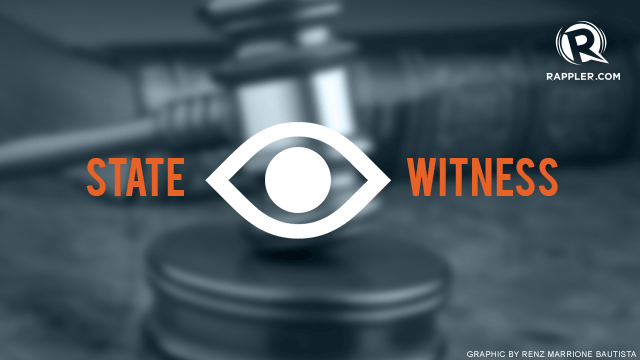SUMMARY
This is AI generated summarization, which may have errors. For context, always refer to the full article.

MANILA, Philippines (UPDATED) – The Department of Justice (DOJ) has placed alleged pork barrel scam mastermind Janet Lim Napoles under provisional coverage of the Witness Protection Program (WPP).
A certification signed by DOJ Assistant State Prosecutor Nerissa Molina Carpio shows Napoles was put under the WPP on February 27, 2018.
For Napoles to become state witness, however, the Office of the Ombudsman has to recommend it to the Sandiganbayan. The anti-graft court has the last say.
In May 2017, however, Ombudsman Conchita Carpio Morales said she would block any attempt to make Napoles a state witness because of her being “one of the principal alleged malefactors.”
Here are some facts on how one can become a state witness, and how one can be admitted to the government’s Witness Protection, Security and Benefits Program.
1. Who is a state witness?
A person charged with the commission of a crime but who is discharged with his consent so that he/she may be a witness for the State.
2. Who applies for the discharge of the state witness, and where is the application submitted?
The prosecution submits to the court a motion for the discharge of the state witness.
Republic Act 6981 (the Witness Protection, Security and Benefit Act) also states that the Department of Justice (DOJ) can “petition the Court for [the accused’s] discharge in order that he can (be) utilized as State Witness.”
The court will direct the discharge of the accused after all requirements are met.
3. What are the requirements in order for an accused to be discharged as a state witness?
Section 9, Rule 119 of the Rules of Court provides for the following requirements:
- There is absolute necessity for the testimony of the accused.
- There is no other direct evidence available for the proper prosecution of the offense committed, apart from the testimony of the accused.
- The testimony of the accused can be substantially corroborated in its material points.
- The accused does not appear to be the most guilty.
- The accused hasn’t been convicted of any offense involving moral turpitude.
4. What is the procedure for discharging a person as a state witness?
The prosecution should file a motion to discharge the accused as state witness with his consent.
The court will require the prosecution to present evidence and the sworn statement of the proposed state witness.
If the court is satisfied, it will discharge the state witness. But if the court denies the motion for discharge, the State can file a petition for certiorari.
5. What are the effects of the discharge?
- Evidence in support of the discharge shall automatically form part of the trial (unless the court denies the motion to discharge).
- The discharge is equivalent to an acquittal, unless the witness fails or refuses to testify later on.
6. How can a state witness be admitted to the Witness Protection, Security and Benefits Program?
While the application as state witness is the domain of the court, the application for admission in the program is filed to and approved by DOJ.
An application form may be obtained from the Witness Protection Security and Benefit Program Secretariat (at the DOJ building in Padre Faura, Manila) or from any Regional State Prosecutor.
7. What are the requirements in order for a state witness to be admitted in the program?
RA 6981 states the same requirements listed Section 9, Rule 119 of the Rules of Court (see #3 above), but adds another requirement:
- The offense in which the accused testimony will be used is a grave felony as defined under the Revised Penal Code or its equivalent under special laws
8. Apart from the acquittal, what other benefits may a witness under the program receive?
- Security protection and escort services
- Secure housing facility
- Assistance in obtaining a means of livelihood.
- Reasonable traveling expenses and subsistence allowance while acting as a witness
- Free medical treatment, hospitalization and medicine for any injury or illness incurred or suffered while acting as a witness
- Burial benefits of not less than P10,000 if the witness is killed
- Free education from primary to college level for the minor or dependent children of a witness who dies or is permanently incapacitated
- Non-removal or demotion in work because of absences due to his being a witness, and payment of full salary or wage while acting as witness
– Rappler.com
Sources:
DOJ primer on the Witness Protection, Security and Benefit Program
RA 6981 – Witness Protection, Security and Benefit Act
Rule 119, Revised Rules of Criminal Procedure
Add a comment
How does this make you feel?
There are no comments yet. Add your comment to start the conversation.